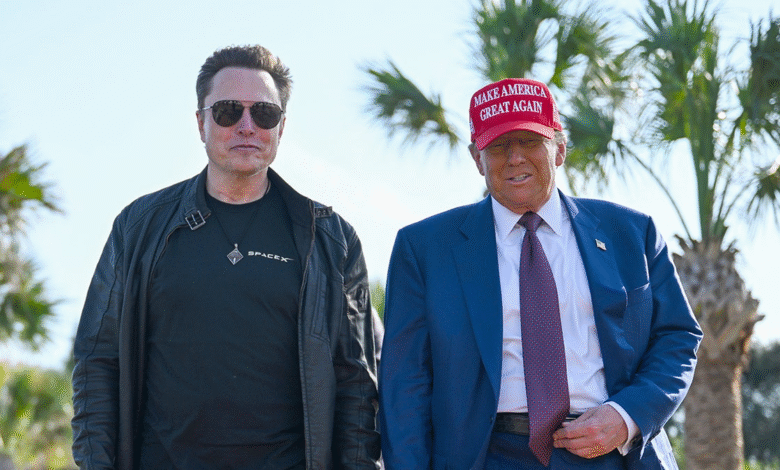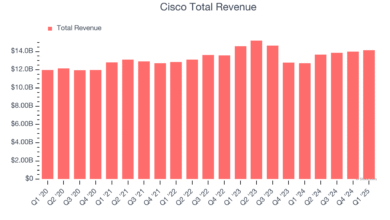Elon Musk Criticizes Senate Bill as ‘Utterly Insane’

Elon Musk criticizes the Senate bill that has been at the forefront of political debate, labeling it as “utterly insane” and threatening to destroy millions of jobs across America. His sharp remarks come in light of a comprehensive domestic policy package aimed at renewable energy, which, according to Musk, would tax several green initiatives, including Tesla renewable energy projects. As the head of Tesla, Musk highlighted his concern over the bill’s provisions, suggesting they undermine future industries while propping up outdated sectors. In a social media post, he lamented the bill’s destructive potential and warned that it would severely impact the economy. The brewing tensions between Musk and Trump over this “big beautiful bill” further underscore the heated political climate surrounding this crucial legislative issue.
In a recent uproar, the controversial domestic legislation has drawn significant scrutiny from influential figures in the tech and energy sectors. Elon Musk, a prominent entrepreneur and CEO, has openly expressed his discontent regarding this legislative package that threatens to trim funding for emerging energy technologies. The backlash against the Senate’s approach to renewable resources has amplified as discussions about financial support for traditional energy methods gain momentum. Moreover, the unfolding drama surrounding the bill has also sparked protests from activist groups dissatisfied with Musk’s political affiliations, including the Tesla Takedown protests. With Trump’s backing of the bill, this situation highlights the intersection of business interests and political agendas in contemporary America.
Elon Musk Criticizes Senate Bill and Its Impact on Renewable Energy
On Saturday, Elon Musk vocally criticized the Senate’s domestic policy package, branding it as “utterly insane” and detrimental to the future of various renewable energy initiatives. His comments highlight the growing concern among innovators in the renewable sector who fear that increased taxes on projects like solar, wind, and geothermal energy will hinder progress and investment in critical technologies. Musk’s Tesla is a leader in the renewable energy space, producing innovative energy storage systems and solar energy solutions, which could be severely impacted by the proposed legislation.
Musk’s discontent with the Senate bill reflects broader apprehensions expressed by industry leaders about potential setbacks in the fight against climate change. By advocating for traditional energy sources through subsidies, such as coal for steel production, the bill contradicts the shift needed towards sustainable energy solutions. This position places significant stress on the growth and expansion of Tesla renewable energy projects, leading to fears of job losses and economic stagnation in sectors that are crucial for America’s future.
The Fallout from Musk’s Public Critique of Trump’s Policy
The fallout from Elon Musk’s sharp critique of the Senate bill reveals just how much influence public statements can have on corporate fortunes. Following his incendiary comments, shares of Tesla took a 14% hit, illustrating the volatile connection between political discourse and market performance. Musk’s previous support for President Trump’s administration seemed to complicate this latest dispute, as he found himself at odds with a figure he once backed actively. His characterization of Trump’s “big, beautiful bill” as a “disgusting abomination” has not only raised questions about his political strategy but has also strained his relationship with the White House.
This public dispute comes at a time when the stakes for Musk are particularly high. Having made significant financial commitments to Trump’s election campaign, he now risks alienating important political allies. The tensions between Musk and Trump underline the ongoing debate within the Republican Party about the direction of domestic policy. Activists from the Tesla Takedown movement have also galvanized around this conflict, organizing protests to oppose Musk’s alignment with Trump and demanding accountability for perceived alignment with controversial political actions.
Understanding the Importance of Sustainable Policies Amidst Political Divides
Elon Musk’s comments on the Senate domestic policy package shed light on a crucial concern: the need for sustainable policies that support future energy technologies. As the leader of Tesla, Musk is invested in not only the future of his company but the broader implications for the renewable energy sector as a whole. The current legislative environment poses a critical test for policymakers who must balance traditional energy interests with the pressing need for a shift to renewable sources.
The tension between opposing political narratives complicates the path toward sustainable energy policies that can secure long-term economic growth. While Trump’s backing for traditional energy sources attempts to foster economic stability in the short term, industry leaders like Musk advocate for a vision that includes investing in the technologies of tomorrow. Policymakers may need to reconsider their approaches to ensure that any legislation supports innovation in the energy sector, thereby aligning economic interests with environmental responsibility.
The Implications of Political Relationships for Business Leaders
Elon Musk’s evolving relationship with President Trump highlights the complex interplay between politics and business leadership. After showing strong support for Trump and making substantial financial contributions to his campaign, Musk’s critique of the Senate bill signals a significant shift. As one of the most public symbols of entrepreneurial success, Musk’s actions could influence other business leaders in their approach to political involvement.
The repercussions of Musk’s statements extend beyond stock prices; they serve as a cautionary tale about the risks involved in political endorsements. Musk’s initial alignment with Trump allowed him access to power, but his outspoken dissent undermines that relationship and raises questions about future governmental support for Tesla and its renewable energy initiatives. Business leaders must navigate these dynamics carefully, recognizing that their political stances can dramatically impact their companies and the industries they represent.
Activism and Its Impact on Corporate Giants Like Tesla
Musk’s recent comments and the surrounding controversy have spurred a wave of activism, particularly from groups such as Tesla Takedown. These activists are mobilizing against Musk’s political alignments, specifically targeting his association with President Trump and the broader implications for corporate accountability. Organizing protests and public demonstrations, these activists aim to hold Musk accountable for his perceived inconsistencies regarding immigration policies and his support for right-wing agendas.
The rise of activist groups like Tesla Takedown underscores the growing intersection between corporate governance and social responsibility. As citizens become more engaged in political discourse and demand greater accountability from business leaders, corporate giants like Tesla may face increasing pressure to align their practices with the values of their consumer base. Musk’s ability to manage this tension will be vital as he navigates the complex landscape of political activism and public sentiment.
Future Directions for Renewable Energy Advocacy
The discourse surrounding the Senate domestic policy package exemplifies the critical need for advocacy in the renewable energy sector. As leaders like Elon Musk vocalize their opposition to bills that threaten innovation and sustainability, the call for active engagement becomes more pronounced. The intersection of renewable energy with political strategies highlights an urgent necessity for advocates to rally around policies that truly support the transition to sustainable energy sources.
Future directions for advocacy must prioritize collaborative efforts among industry leaders, environmental activists, and policymakers to craft legislation that aligns with ecological and economic goals. Musk’s position as a leading voice in advocacy can help shape the narrative surrounding renewable energy, encouraging other business leaders to join the cause. The fight for sustainable legislation will require narrowing the divide between political factions to create a united front for the future of energy in America.
Musk’s Influence in the Renewable Energy Sector
As the CEO of Tesla, Elon Musk wields significant influence within the renewable energy sector, making his criticisms of the Senate bill particularly poignant. His commitment to developing and scaling renewable technologies has solidified Tesla’s standing as a beacon of innovation, yet political misalignments pose challenges that could hinder further advancements. Musk’s unfiltered approach on platforms like X offers a glimpse into the staunch defense he provides for the renewable industry.
Musk’s comments not only reflect his personal views but also resonate with a growing movement among industry advocates who are deeply concerned about the implications of potential legislation that could harm renewable advancements. His stature enables him to rally support for necessary changes, encouraging public discourse around energy policy that fosters growth instead of stagnation. As the landscape of energy continues to evolve, Musk’s role as an influential figure in advocating for sustainable practices is more critical than ever.
Navigating Corporate Strategy in a Political Landscape
The increasingly politicized nature of corporate strategy is evident in Elon Musk’s handling of his relationship with President Trump and the implications of the Senate’s domestic policy bill. As public and private sectors intertwine in complex ways, business leaders are tasked with navigating political landscapes that directly affect their companies. Musk’s outspoken criticism illustrates the necessity for corporate executives to balance business interests with principled stances on public policy.
As corporations face scrutiny over their political affiliations, leaders like Musk must carefully consider their messaging and the potential impact on their company’s reputation. Navigating these challenges while maintaining the integrity of their brand will require strategic foresight and careful audience engagement. For Musk, realigning his corporate strategy amidst turbulent political waters will be crucial in ensuring the continued success of Tesla and its mission to promote renewable energy technologies.
Long-term Consequences of Legislative Measures on Innovation
The long-term consequences of the Senate’s proposed domestic policy measures could significantly stifle innovation within the renewable energy sector. Critics, including Elon Musk, warn that increased taxation on forward-thinking industries will create barriers that inhibit technological advancements crucial for the future. If policymakers prioritize outdated energy sources over renewable investments, the repercussions could extend beyond short-term job losses.
As the industry grapples with the fallout from political decisions, companies like Tesla will face challenges adapting to an environment that might not favor sustainable practices. The risk of legislative stagnation in favor of traditional energy sources could thwart years of progress and investment in clean technologies. As Musk continues to voice his concerns, it is clear that securing a future for innovation will require a concerted effort to support policies that champion rather than hinder renewable energy development.
Frequently Asked Questions
Why did Elon Musk criticize the Senate domestic policy package?
Elon Musk criticized the Senate domestic policy package, describing it as “utterly insane” and destructive, due to its provisions that threaten job security and negatively impact renewable energy projects, including solar and battery initiatives.
What are the key elements of the Senate bill that Elon Musk opposes?
Musk opposes key elements of the Senate bill that would increase taxes on renewable energy projects and introduce subsidies for coal production, which he believes undermine the future of clean energy.
How did Elon Musk’s comments on the Senate bill affect Tesla’s stock?
Following Musk’s sharp criticism of the Senate bill, Tesla’s stock plummeted by 14% in a single day, illustrating the volatile reaction of investors to his public statements.
What has been the reaction from politicians regarding Elon Musk’s criticism of the Senate bill?
Musk’s criticism of the Senate bill has stirred heated discussions among politicians, especially given his previous support for Trump, leading to strained relationships after he labeled the bill a “disgusting abomination.”
What is the Tesla Takedown movement and how does it relate to Musk’s Senate bill comments?
The Tesla Takedown movement organized protests in response to Musk’s political alignment with Trump and comments about the Senate bill, organizing “anti-celebrations” to express their disapproval of his collaboration with the former president.
What impact did Elon Musk’s comments have on his relationship with President Trump?
Musk’s criticism of the Senate bill has strained his relationship with Trump significantly, especially given Musk’s previous donations and collaboration with the Trump administration before vocally opposing the bill.
Did Elon Musk express regret after criticizing the Senate bill?
Yes, Musk later expressed regret for some of his comments following the backlash his criticism of the Senate bill received, despite initially standing firmly against its provisions.
What does Elon Musk mean by ‘KILL the BILL’ in reference to the Senate package?
When Musk stated ‘KILL the BILL,’ he was urging lawmakers to reject the Senate domestic policy package, which he feels would harm future industries and job creation in America.
How does Elon Musk’s criticism connect to his renewable energy initiatives at Tesla?
Musk’s criticism emphasizes his commitment to renewable energy, as the Senate bill’s unfavorable treatment of solar and battery projects directly threatens Tesla’s business model and the broader clean energy sector.
What were the broader implications of the Senate domestic policy package as viewed by Elon Musk?
Musk believes the Senate domestic policy package could lead to massive job losses and strategic harm to the U.S., favoring outdated industries while undermining the growth potential of innovative energy sectors.
| Key Points | Details |
|---|---|
| Elon Musk’s Criticism of the Senate Bill | Musk described the Senate’s domestic policy package as “utterly insane” and destructive, claiming it would harm future industries while aiding outdated ones. |
| Impact on Renewable Energy | The bill proposes tax increases on renewable energy projects, including solar, wind, nuclear, and geothermal energy, which are significant for Musk’s businesses. |
| Job Loss Concerns | Musk warned the bill would lead to millions of job losses in America and strategic harm to the country. |
| Coal Subsidy | The legislation introduces a subsidy for coal used in steel production, which Musk opposes. |
| Relationship with Trump | Musk’s criticism has strained his relationship with President Trump, despite previous support and donations to Trump’s re-election campaign. |
| Market Reaction | Following Musk’s comments, Tesla’s stock fell 14% in one day amid concerns about the future of government contracts. |
| Musk’s Regret | A few days after the criticism, Musk expressed regret for some of his posts about the bill. |
| Birthday Protests | Activists organized protests on Musk’s 54th birthday against his collaboration with Trump and support for anti-immigrant policies. |
Summary
Elon Musk criticizes the Senate bill for being “utterly insane” and detrimental to America’s economic future. He highlights the bill’s negative implications for renewable energy sectors and the overall job market. Musk’s remarks underscore broader concerns regarding the legislation, which aims to support outdated industries such as coal while imposing detrimental measures on innovative energy projects, a position that has led to heightened tensions between Musk and President Trump.




